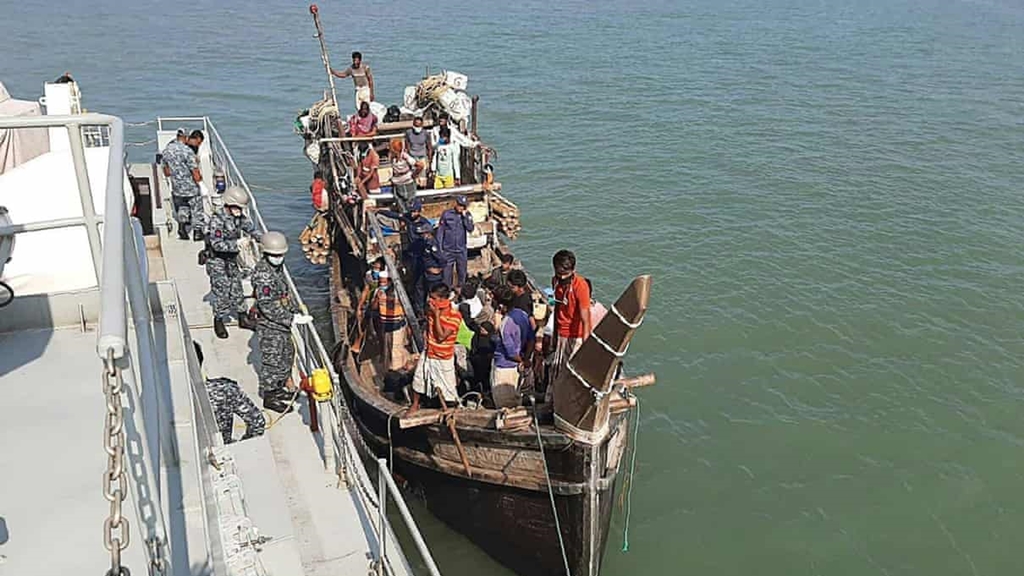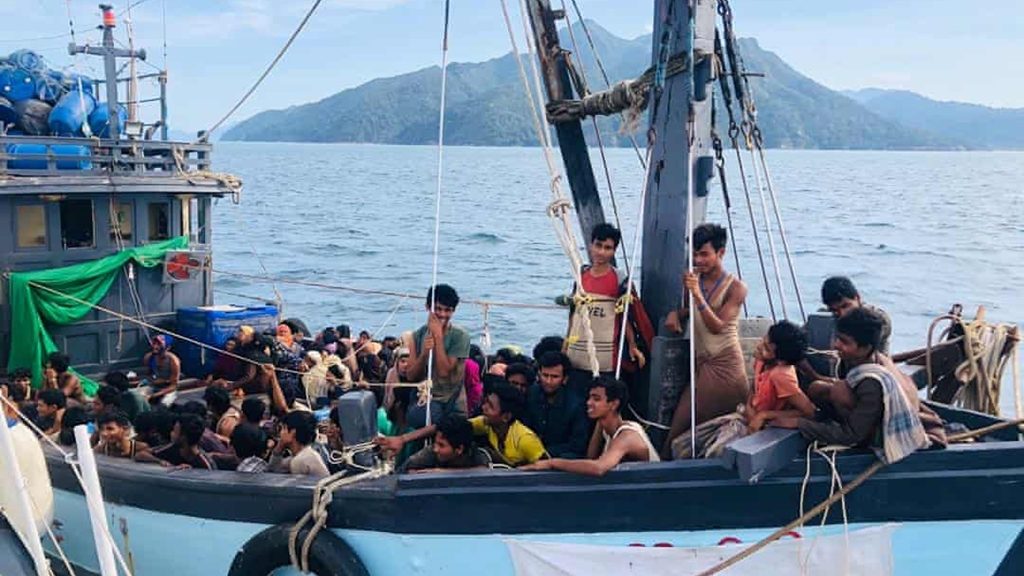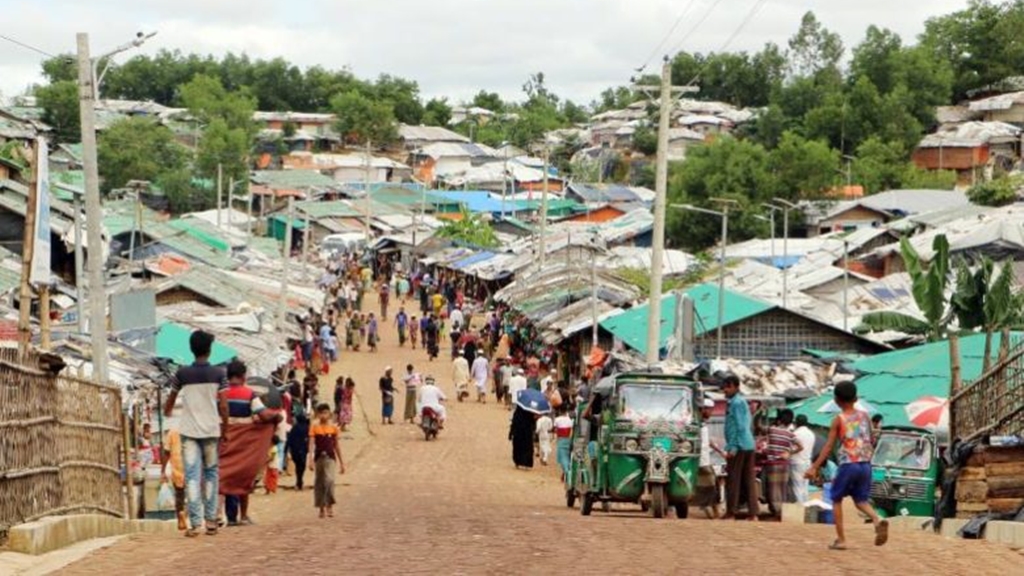
Rohingya face ‘cruel’ caning sentence in Malaysia as hostility to refugees grows
- 21/07/2020
- 0
By Kaamil Ahmed and Rebecca Ratcliffe, The Guardian
Survivors of dangerous sea journey convicted amid a rise in hate speech and mass detentions in centres rife with Covid-19
A group of Rohingya refugees who survived a treacherous journey at sea now face caning and seven months in jail after they were convicted under the immigration act in Malaysia, where activists have warned of an alarming rise in xenophobia and inhumane treatment of the migrants.
Hundreds of arrests and a sharp rise in hate speech have shocked refugees and migrants who had seen Malaysia as a welcoming country, particularly for Muslims, despite not being signed up to the 1951 refugee convention.
Over recent months, Malaysia has been widely condemned for turning away boats carrying Rohingya refugees fleeing desperate conditions in camps in Bangladesh. Some boats were allowed to dock, but the hundreds of refugees onboard are understood to remain in detention, according to Amnesty International.
A group of 31 Rohingya men who disembarked from a boat in April have since been convicted under the Immigration Act, and sentenced to seven months in prison, while at least 20 have been sentenced to three strokes of the cane. Nine women are also facing seven months in prison, while 14 children have been charged and are facing jail terms.
The sentencing, announced in June, has been condemned as “cruel and inhuman” by Amnesty International, which has called for the decision to be overturned.
There is growing concern over the treatment of migrants and refugees in Malaysia, where mass raids were carried out in May. One Yemeni, who spoke to the Guardian on condition of anonymity, said they were imprisoned for weeks after immigration police stopped them on the street. Though later freed because they were registered under the UN’s refugee agency (UNHCR), they are now too scared to leave home.

The prospect of being sent to detention centres, notorious for violence and illness, has become a most stark threat. At least 735 cases of coronavirus were reported in the centres in June, almost 10% of the country’s total.
Refugees and aid workers say detention conditions are cramped and unsanitary, and food is limited.
“It was a horrible situation, the treatment they subjected us to. They took us into the prison, it was small but with so many people, and so many people were ill … it was like we were animals,” said the Yemeni refugee.
“There were a lot of Covid-19 cases … the ill, and those who weren’t, were all next to each other without separation.”
Another Yemeni refugee told the Guardian: “They put me in a jail cell for three days without food, without drink or even a toilet. Then they transferred me to a cell in a big prison where there were 200 people.
“I was in the prison and then we were taken out in handcuffs, all together, and they started beating us. Four of the guards beat us and then said we’re being released. The [coronavirus] and the beatings were agonising.”
Malaysian officials deny poor treatment in the centres. Director-general of health Dr Noor Hisham Abdullah said positive cases from detention centres are isolated in hospitals, and those who have been in contact with these patients are quarantined in special facilities.
The raids that started in May followed a surge in xenophobia after Malaysia was criticised for sending boats carrying hundreds of Rohingya refugees back to sea.
Almost 600 undocumented migrants were arrested in the first weekend. Authorities were criticised for rounding up residents and forcing them to sit on the ground without social distancing.
A refugee advocate who helps detainees access legal support said that victims they had spoken to included many with UNHCR cards, who were arrested by police indiscriminately rounding up foreigners. UNHCR confirmed that some had been arrested but later released.
Malaysia does not officially grant refugee status, but hosts more than 170,000 UNHCR-registered people, mostly from Myanmar. Tens of thousands more stay informally, having arrived by boat believing Malaysia would offer safety and freedom to work.
More recently, Syrians and Yemenis have arrived, and Malaysia is one of very few countries that offers them temporary tourist visas.
A new wave of xenophobic attacks began this month, coinciding with the airing of an Al Jazeera documentary which the government called “fake news”. Six journalists who worked on the programme are now being investigated for sedition.
Malaysia has threatened to punish foreigners accused of comments “aimed at damaging Malaysia’s image”, stripping one of Al Jazeera’s interviewees of his work visa and investigating activists over Facebook posts.
The government has announced that foreigners will be banned from mosques when they reopen.
“The government is cracking down on migrants and refugees, instead of upholding everyone’s right to health during Covid,” said John Quinley, human rights specialist at Bangkok-based Fortify Rights.
“The environment of fear and intimidation against migrants and refugees must end.”

Prominent refugee figures and advocates say they have been threatened on social media in attacks they believe are coordinated, often using similar language. One migrant changed their phone number and moved to a rural area after receiving threatening messages.
Nur, a Malaysian activist whose name has been changed for their safety, said their group is providing food to families who were struggling during the lockdown but now fear arrest if they return to work.
“We’re still seeing people struggling and this is amplified by the recent regulations set up by our government, even telling house owners that they can’t rent to the migrant and refugee communities,” Nur said.
“Every other day there’s new regulations and new targeted speech against the refugees and ‘illegal immigrants’.”
One Rohingya refugee shared messages from their local religious school, seen by the Guardian, saying their child would not be allowed to return, despite having paid fees. Refugee children are not allowed to attend formal schools, and rely on religious schools.
UNHCR said it has not had access to Malaysian detention centres since last August.
“This has unfortunately prevented UNHCR from seeing detained persons of concern in order to determine those in need of international protection and to advocate for their release. With the recent developments of raids, this continues to be a growing concern,” the agency said in emails.
“We are aware and concerned that there remains in detention a number of persons of concern, including vulnerable individuals, requiring our attention.”






